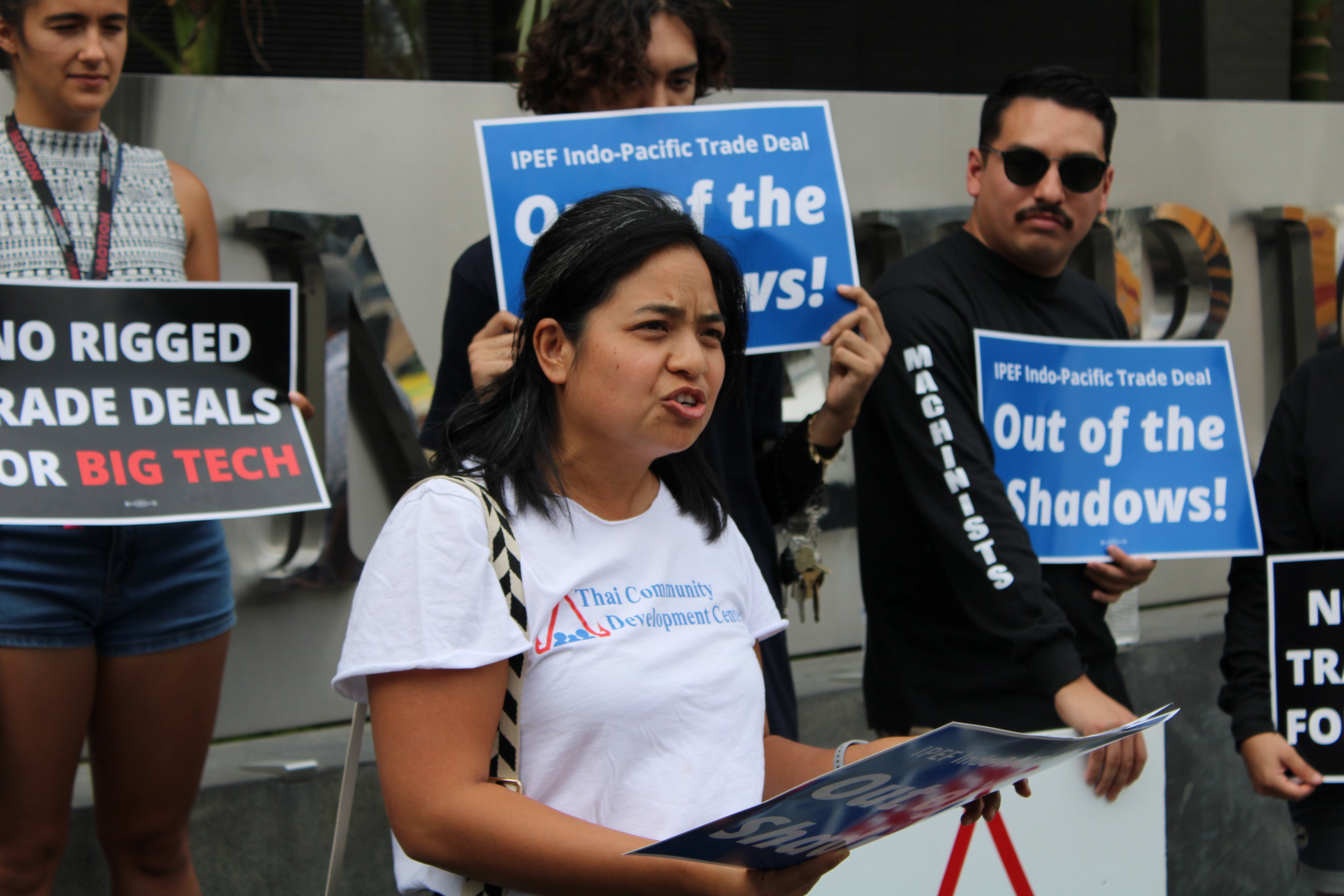LNP secrecy deal for Indo-Pacific Economic Framework (IPEF) challenges Labor policy for trade transparency
AFTINET | 4 October 2022
Media Release: LNP secrecy deal for Indo-Pacific Economic Framework (IPEF) challenges Labor policy for trade transparency
The US Trade Representative Office has confirmed that it signed secrecy agreements with Australia and 12 other members of the Indo-Pacific Economic Framework (IPEF) in April 2022, after an FOI request revealed the secrecy agreement signed with New Zealand.
Governments have agreed to keep all documents exchanged during the negotiations “in confidence” for five years after the Indo-Pacific Economic Framework enters into force or the talks otherwise come to an end.
“This secrecy agreement, signed before the election, flies in the face of the Labor government policy platform of a more open trade policy process and claims made by IPEF itself to have detailed consultation with community stakeholders,” AFTINET Convener Dr Patricia Ranald said today.
On September 8, AFTINET joined forty-six community organisations from IPEF countries in an open letter calling for greater transparency when IPEF Trade Minsters announced negotiating objectives for the four pillars of Trade, Supply Chains, Clean Economy and Fair Economy.
“IPEF agreements will impact directly on peoples’ lives in terms of labour rights and environmental standards, and many other areas, and there should be access to negotiating proposals for the public and community groups, including unions and environment groups. Without such access, IPEF cannot meet its claimed goals of improving workers’ rights and environmental standards. We call on the Labor government to implement its policy for a more open process,” said Dr Ranald.
Contact Dr Patricia Ranald 0419 695 841 or campaign@aftinet.org.au
Background:
IPEF includes the US, Australia, Brunei Darussalam, India, Indonesia, Japan, the Republic of Korea, Malaysia, New Zealand, the Philippines, Singapore, Thailand, Vietnam and Fiji.
IPEF is an initiative of the US Biden administration mainly motivated by strategic competition with China in the region. The US is not part of the two big existing regional trade agreements, the Regional Comprehensive Economic Partnership (RCEP) of 15 countries including China, and the Comprehensive and Progressive Agreement for Trans-Pacific Partnership of 11 Pacific Rim countries. There is bipartisan US Congressional opposition to legally binding agreements which would increase imports into US markets.
The US proposes IPEF to be a trade and investment framework for US-aligned countries in the region, without offering more access to US markets, with the aims of achieving: high labour and environmental standards; a digital trade framework; predictable supply-chains; and greater investment in decarbonisation and clean energy.






